GCA recently announced the 20 finalists for the Local Adaptation Champions Awards, including five initiatives that are demonstrating innovative ways to provide flexible, long-term, and patient funding for adaptation at the local level.
The final five shortlisted in the Innovation in Devolving Finance category are exemplary, inspiring, and scalable examples of programs and projects that find innovative ways to enable and support local determination of climate challenges, priorities, and solutions.
Mansakanko Area Council
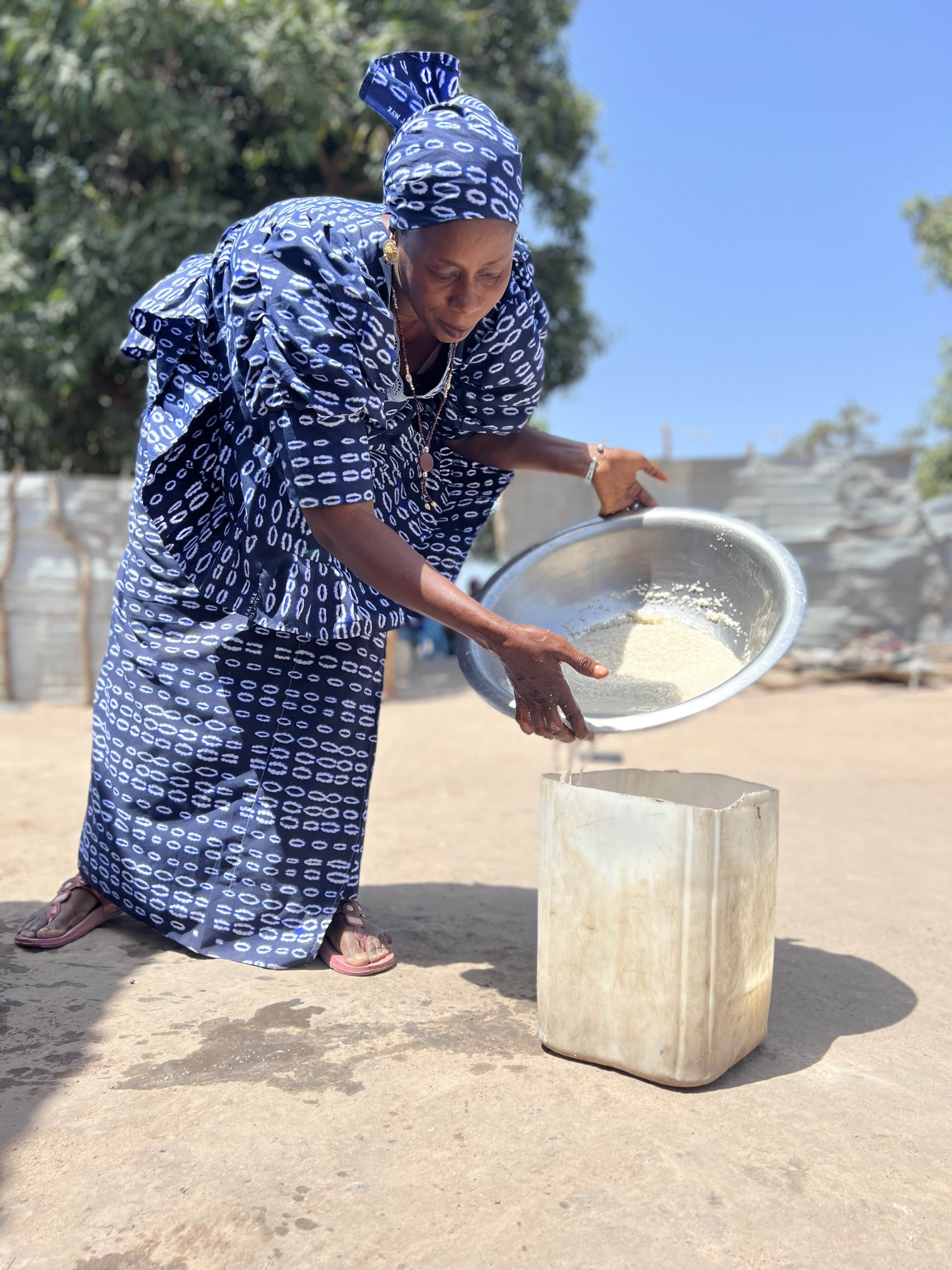 Mansakonko Area Council has implemented the Local Climate Adaptive Living (LoCAL) Facility mechanism for climate finance delivery in The Gambia to deliver national funds to the local level, where the impacts of climate change are most acutely experienced. LoCAL was implemented through The Gambia’s Jobs Skills and Finance Program, including “Cash for Work” actions that provided community members with funding to implement adaptation projects or learn new skills like masonry or engineering. “Communities are able to identify what they need to best adapt and thrive and even take part in the work to realize their ambitions,” says Landing B. Sanneh, Chairman of Mansakonko Area Council. The LoCAL Facility is being implemented in 17 countries across Africa, Asia, and the Pacific, and 17 more countries are currently planning LoCAL actions. But while LoCAL is a global mechanism, it is implemented at the local level and responds to locally identified and articulated needs.
Mansakonko Area Council has implemented the Local Climate Adaptive Living (LoCAL) Facility mechanism for climate finance delivery in The Gambia to deliver national funds to the local level, where the impacts of climate change are most acutely experienced. LoCAL was implemented through The Gambia’s Jobs Skills and Finance Program, including “Cash for Work” actions that provided community members with funding to implement adaptation projects or learn new skills like masonry or engineering. “Communities are able to identify what they need to best adapt and thrive and even take part in the work to realize their ambitions,” says Landing B. Sanneh, Chairman of Mansakonko Area Council. The LoCAL Facility is being implemented in 17 countries across Africa, Asia, and the Pacific, and 17 more countries are currently planning LoCAL actions. But while LoCAL is a global mechanism, it is implemented at the local level and responds to locally identified and articulated needs.
Local Government Initiative on Climate Change
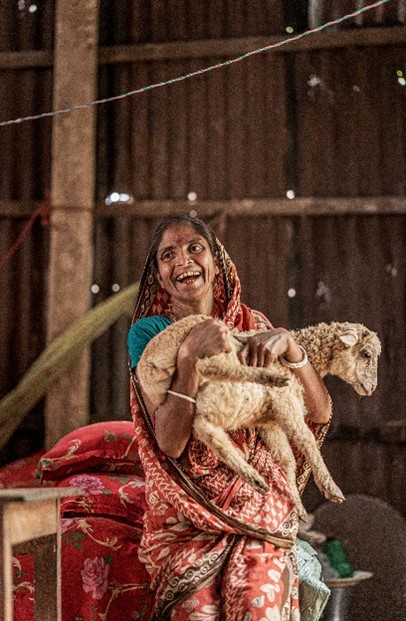 In Bangladesh, the Local Government Initiative on Climate Change (LoGIC) is enhancing communities’ ability to plan and finance local adaptation actions that suit their needs and contexts. Through this project, Local Government Division, Ministry of Local Government, Rural Development and Co-Operatives, Government of Bangladesh provides a mechanism for accessing and managing climate finance from various sources, a platform for sharing best practices and lessons learned, and a system for monitoring and evaluating effectiveness and impact. Mohammed Fazla Azim, Joint Secretary and National Project Director, describes LoGIC as a participatory and inclusive process: “By facilitating access to markets and financing, the project enables climate-vulnerable communities to upscale adaptive practices, diversify income sources, and invest in climate-resilient livelihoods based on traditional knowledge at both national and local levels.” LoGIC is currently operating in nine districts in Bangladesh.
In Bangladesh, the Local Government Initiative on Climate Change (LoGIC) is enhancing communities’ ability to plan and finance local adaptation actions that suit their needs and contexts. Through this project, Local Government Division, Ministry of Local Government, Rural Development and Co-Operatives, Government of Bangladesh provides a mechanism for accessing and managing climate finance from various sources, a platform for sharing best practices and lessons learned, and a system for monitoring and evaluating effectiveness and impact. Mohammed Fazla Azim, Joint Secretary and National Project Director, describes LoGIC as a participatory and inclusive process: “By facilitating access to markets and financing, the project enables climate-vulnerable communities to upscale adaptive practices, diversify income sources, and invest in climate-resilient livelihoods based on traditional knowledge at both national and local levels.” LoGIC is currently operating in nine districts in Bangladesh.
ENVenture
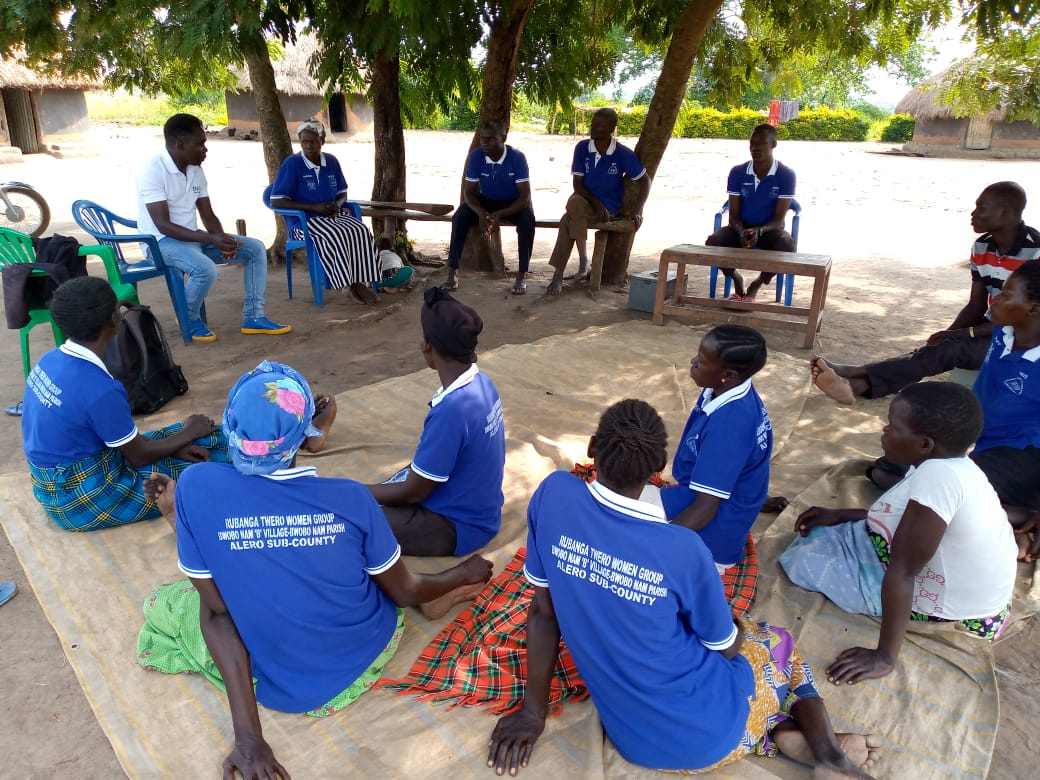 ENVenture supports off-grid communities in Uganda to access clean energy by enabling access to affordable clean energy products. Six energy kiosks operated by refugee entrepreneurs have been set up in BidiBidi and Kiryandongo settlements, empowering communities by bridging the digital divide and ensuring access to clean energy technology despite limited internet penetration. Julius Mujuni, Country Director, says, “This project is a crucial response to the pressing need for clean and affordable energy solutions among vulnerable populations, particularly refugees in Uganda.” Mujuni explains that the project fosters economic growth and alleviates challenges such as physical distance and the low purchasing power of women: “We empower refugee entrepreneurs with training, connections to quality energy suppliers, and grants or zero-interest loans.” ENVenture aims for a sustainable energy landscape by boosting livelihoods and curbing environmental harm through clean tech adoption.
ENVenture supports off-grid communities in Uganda to access clean energy by enabling access to affordable clean energy products. Six energy kiosks operated by refugee entrepreneurs have been set up in BidiBidi and Kiryandongo settlements, empowering communities by bridging the digital divide and ensuring access to clean energy technology despite limited internet penetration. Julius Mujuni, Country Director, says, “This project is a crucial response to the pressing need for clean and affordable energy solutions among vulnerable populations, particularly refugees in Uganda.” Mujuni explains that the project fosters economic growth and alleviates challenges such as physical distance and the low purchasing power of women: “We empower refugee entrepreneurs with training, connections to quality energy suppliers, and grants or zero-interest loans.” ENVenture aims for a sustainable energy landscape by boosting livelihoods and curbing environmental harm through clean tech adoption.
Climates
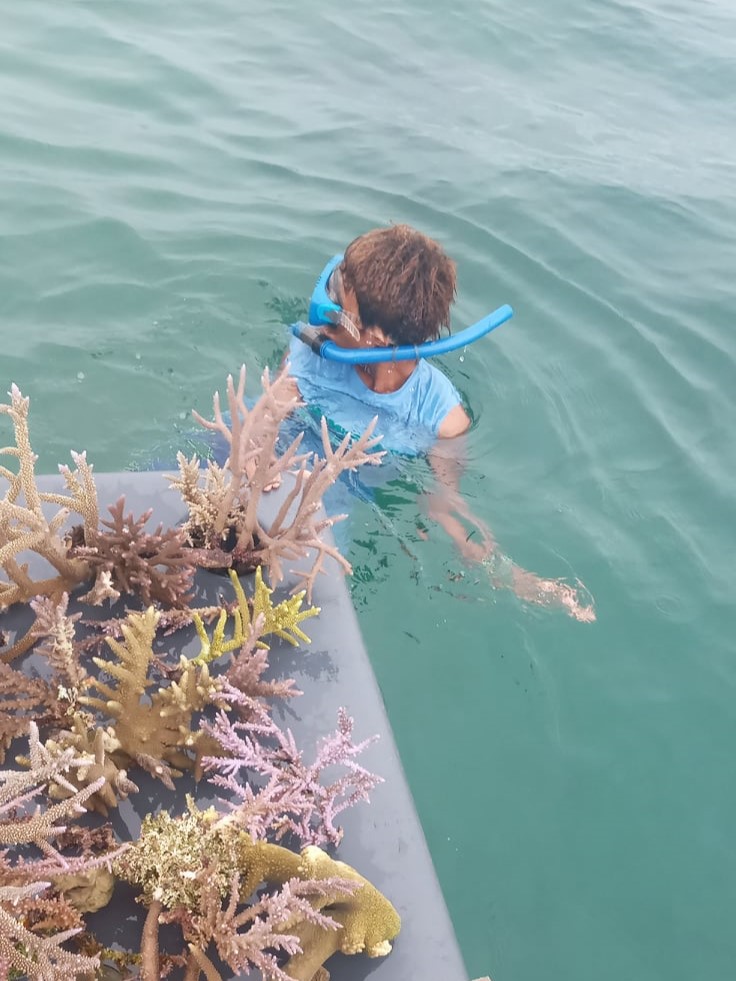 The Micro Grants program implemented by Australasia-based Climates has supported projects in Fiji, Vanuatu, Papua New Guinea, and several other island states. Farema Yazdi, Managing Co-Director, explains: “Climates was founded in 2015 by people who felt disempowered by the scale of climate change in the Australia-Pacific region.” The Micro Grants program thus addresses the experiences of many communities who, despite being on the frontlines of the climate crisis, face barriers accessing resources to respond to climate change. Micro Grants fill small-scale funding gaps to support local visions of climate resilience and back projects that face barriers to attracting large-scale capital. Funding terms are flexible and grants are available without complicated application or reporting processes, and so far, these grants have supported a range of projects from coral rehabilitation and disaster resilience workshops to installing water tanks and climate-resilient infrastructure.
The Micro Grants program implemented by Australasia-based Climates has supported projects in Fiji, Vanuatu, Papua New Guinea, and several other island states. Farema Yazdi, Managing Co-Director, explains: “Climates was founded in 2015 by people who felt disempowered by the scale of climate change in the Australia-Pacific region.” The Micro Grants program thus addresses the experiences of many communities who, despite being on the frontlines of the climate crisis, face barriers accessing resources to respond to climate change. Micro Grants fill small-scale funding gaps to support local visions of climate resilience and back projects that face barriers to attracting large-scale capital. Funding terms are flexible and grants are available without complicated application or reporting processes, and so far, these grants have supported a range of projects from coral rehabilitation and disaster resilience workshops to installing water tanks and climate-resilient infrastructure.
Water Justice Fund
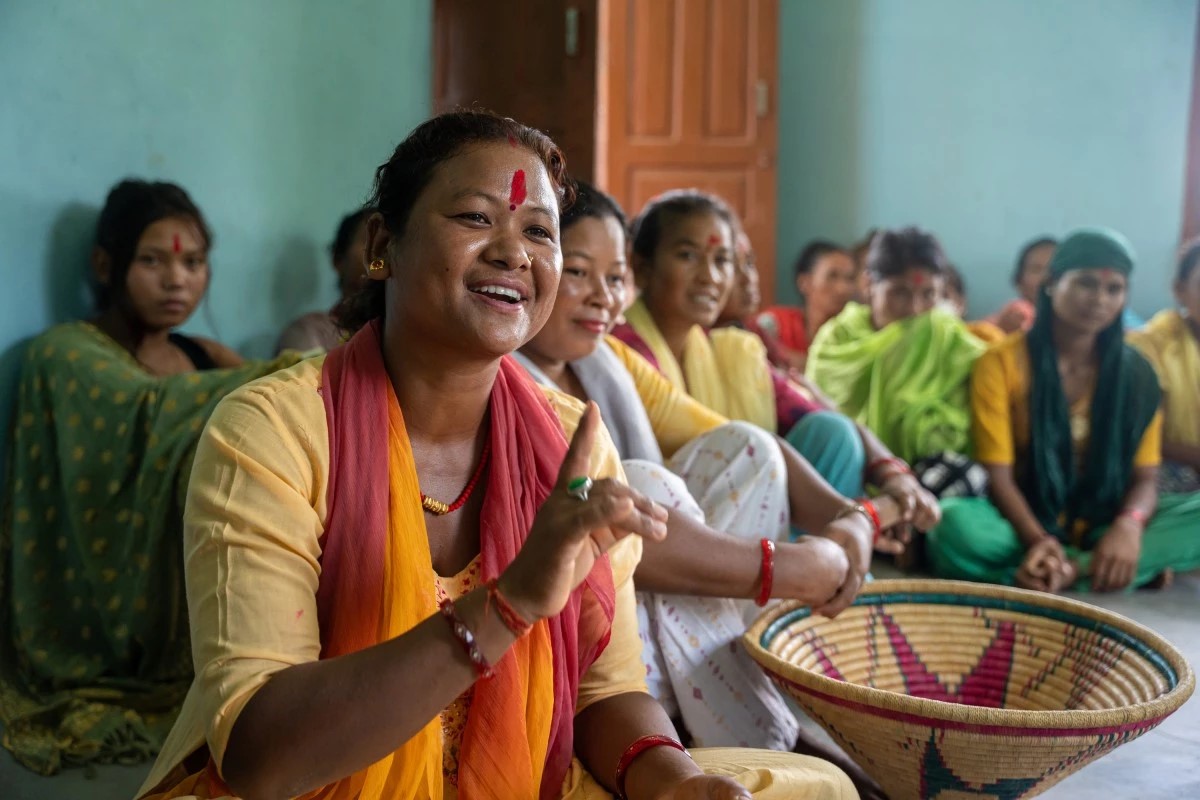 The Water Justice Fund established by Sahakarmi Samaj is a response to the critical intersection of climate change and water, which has had severe consequences for communities in Nepal, particularly for women and girls. The Fund provides women leaders in Gauriganga and Banglachuli with direct access to funding and empowers their decision-making authority to shape adaptation strategies. As Ammar Bahadur Air, Executive Director, explains, the Fund’s participatory model ensures decisions regarding grant utilization are made by the women and girls who are most impacted by the climate change issues being addressed: “Through this approach, we foster a heightened sense of accountability in fund utilization and ensure that community members are engaged in decision-making from start to finish.” “By focusing on marginalized individuals and communities, structural inequalities are addressed while strengthening community responsiveness to climate challenges,” Air adds.
The Water Justice Fund established by Sahakarmi Samaj is a response to the critical intersection of climate change and water, which has had severe consequences for communities in Nepal, particularly for women and girls. The Fund provides women leaders in Gauriganga and Banglachuli with direct access to funding and empowers their decision-making authority to shape adaptation strategies. As Ammar Bahadur Air, Executive Director, explains, the Fund’s participatory model ensures decisions regarding grant utilization are made by the women and girls who are most impacted by the climate change issues being addressed: “Through this approach, we foster a heightened sense of accountability in fund utilization and ensure that community members are engaged in decision-making from start to finish.” “By focusing on marginalized individuals and communities, structural inequalities are addressed while strengthening community responsiveness to climate challenges,” Air adds.